© ROOT-NATION.com - Use of content is permitted with a backlink.
We are already acquainted with EKSA thanks to the E900 Pro headset, which was quite good. Literally for a penny we got a decent sound, a bunch of features that were previously available only in the premium segment, and the classy design. This time I ordered the device for myself. Today I will be reviewing the EKSA Air Joy Pro.
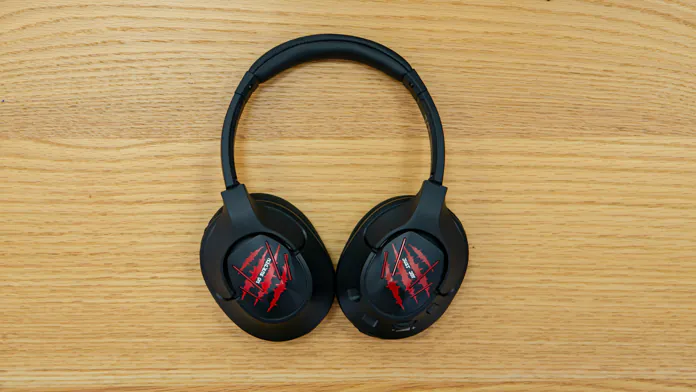
Market positioning
The price of this headset ranges from $40. In the company’s arsenal this is a mid-range option, which is not very interesting, because there are usually 5-10 bucks between the budget and the flagship. In addition, on AliExpress and other Chinese stores, the price will be even lower, about 27 USD.
What’s in the box
This is the second time EKSA has bundled (relatively) unpretentious headsets with the wildest set of stuff. For starters, the cables are detachable here. Among them are USB Type-A to Type-C, Type-C to 3.5mm, a microphone and a splitter. Plus, a storage bag and paper manuals.
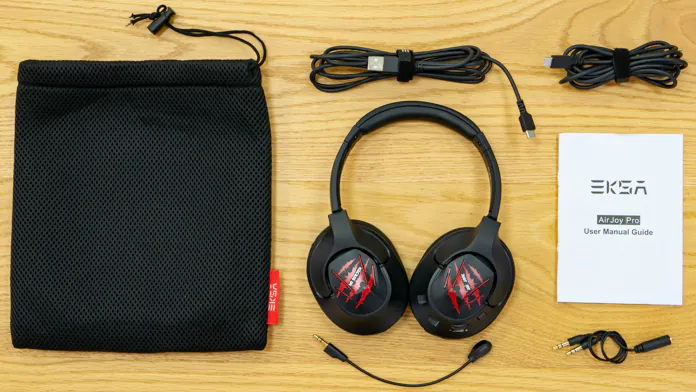
Bundled cables are not braided, but with a soft-touch sheath. But they are rather long. USB Type-C to mini-jack, for example, is 2 meters!
Appearance
The headset itself, although almost completely black, still looks too gamer…y. It is small in size, very light (162 grams (the E900 Pro was 253 grams)), but these red cuts on the headphones are too pretentious.
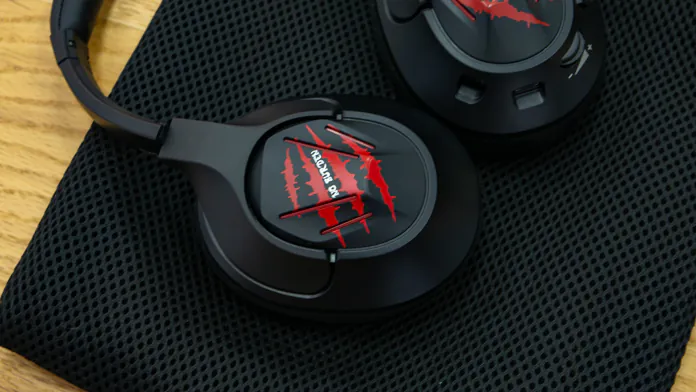
The plastic is good, and the thin red lines – which, of course, are backlighted – are very nice.
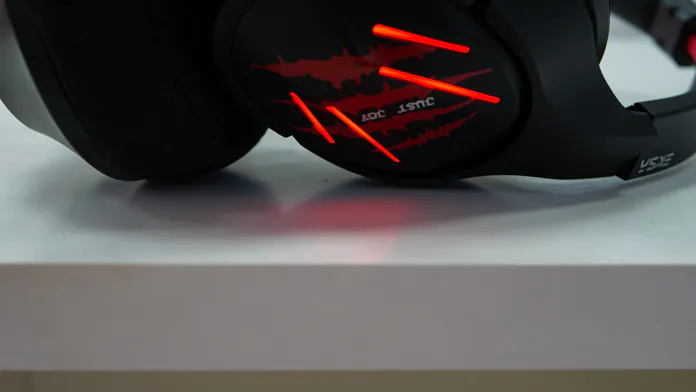
The headboard is soft, but the thickness is small, and I sometimes felt pressure on the top of my head.
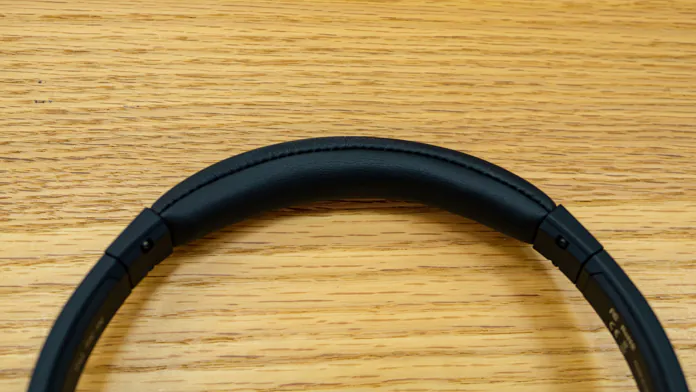
The headset has essentially two degrees of freedom – the headphones rotate along the vertical and horizontal axis, and the headboard length is adjustable by three centimeters in each direction. If anything, for my mid-sized head on both sides just 3 cm was enough – perhaps if your head is larger, the headset will be too small for you.
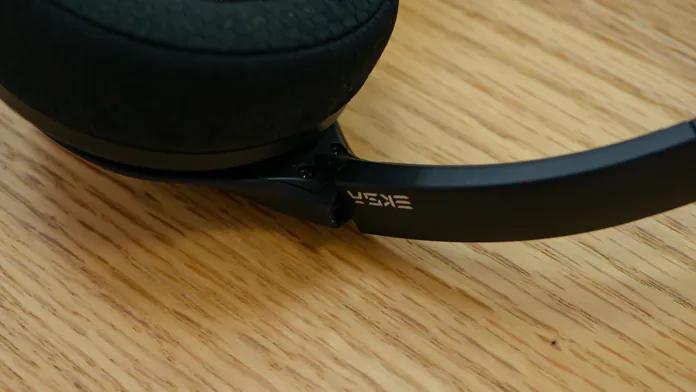
The ear pads are the main feature of the EKSA Air Joy Pro for me. They are rag-like, breathable, reluctant to let sound out. Actually, it’s because of the ear pads I ordered this model.
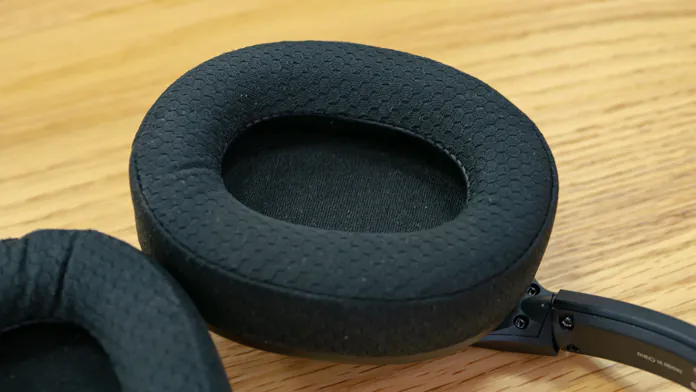
All audio controls are located on the bottom and side of the left earcup. There is a Type-C connector for connecting a cable, a microphone connector, a volume wheel and a button for switching the microphone.
The headset is quite powerful. 50 mm drivers, 115 dBa to 121 dBa, 30 Ohm of impedance. Microphone has noise reduction, frequency range varies from 20 to 20,000 Hz, sensitivity is -42 dB. Virtual 7.1 sound is also supported, but only when using a USB cable connection.
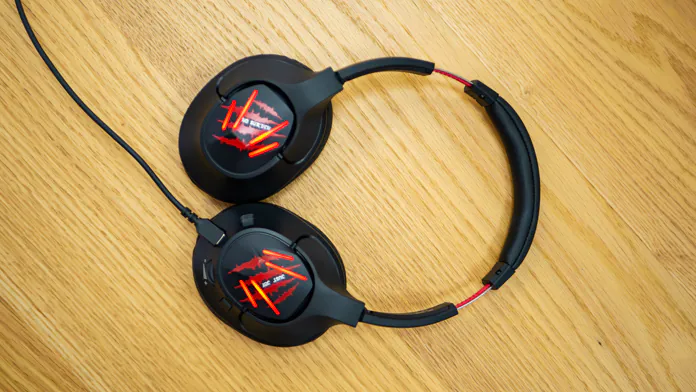
The red non-switchable LED will also work with it. It’s not very annoying, but noticeable.
The EKSA software is both interesting and peculiar. The file is downloaded from the official drivers page; fortunately, there aren’t much models available. The links lead to Google Drive.
The software is a simple program where you can change the volume of individual channels, or set one of three presets, one Hi-Fi and two useless ones. And no, you cannot turn off the LED. And I desperately wanted to.

Experience of use
Actually, the ear pads would be a reason to keep the headset anyway. Even in the heat of 30 degrees C I can sit in the headset for up to an hour, while in any other 5 minutes was the max.
Since the cables are detachable, then, in theory, virtually any should fit the headset. I had no opportunity to check if, say, a non-native 3.5 mm splitter would work, but a random USB Type-C cable connected to a PC allowed me to detect the headset at the Windows level and turned on the LED. But the proprietary software still didn’t recognize the Air Joy Pro.
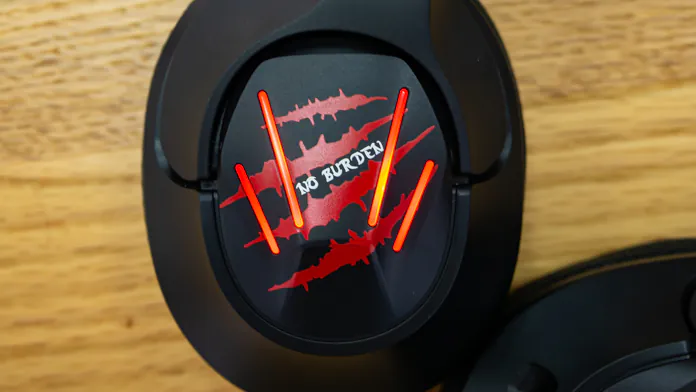
As for the sound quality, the bass is so juicy! My standard test of bass are tracks from DOOM Eternal soundtrack and Charlie Puth – Betty Boop, and the headphones showed very satisfying results. Although at first it seemed that the headphones did not have enough volume, now, after two weeks of use, I can’t find any faults in there.
The lows are decent, the highs are clear, the vocals are expressive. In games, the three-dimensional environment is clear, although the wideness of the scene, of course, is not enough, the signal sources are much more centered, and in games there is no sense of height since the sounds will be infinitely high.
However, the headset has a big issue. Microphone. Yes, it clearly conveys speech, and in games it should be enough, but it sorely lacks the noise-reduction foam, and the iron leg does not hold its shape at all, even if you do not bend it. Because of this the mic will always point at your monitor and miss your mouth.
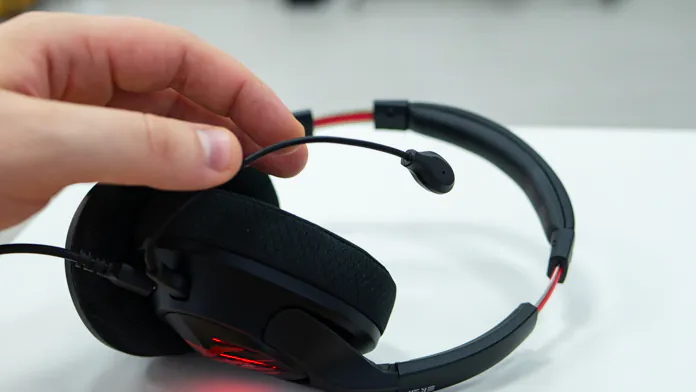
Verdict
This $40 demi-season headset with detachable cables and LED has almost no issues. The manufacturer has gone too far with the software, and the microphone is average, but the EKSA E3 Pro (Air Joy Pro) is now my main headset. Quite an affordable piece of happiness for $25-30. I recommend!


